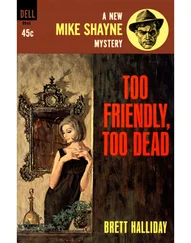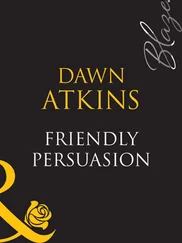"Yes, then, too, there were robberies and indecent acts," remarks the lady of the house, "but the newspapers had only six pages and no space to cover them all. Come, my engineers, and have some tea."
"Maybe we should first check the vibrations in the piston," Ya'ari says, leaning toward his father's feet to warm his hands above the heater's white-hot coils. But the hostess insists they take a break and leads the old man into the living room. The four Filipinos sit stone-still around the refreshment table, as the old man knew they would, waiting for a clear signal allowing them to take a cookie or little sandwich.
The signal is given. The hostess passes around a big plate, and Francisco and Hilario and Pedro and Marco do not refuse a single round, until the plate is empty.
"All right," says the old man, "now let's go have a look at the piston, so it can tell us what's bothering it."
And this time he invites the Filipinos to come with him into the lady's bedroom, and all at once the intimate chamber is filled with the strong presence of members of a different race, who are naturally keen to inspect a little elevator tailored to their own small proportions. Amotz heads over to check how to detach the oil piston from the wall, but his father tugs him by the jacket and says, This time, let me lead.
Ya'ari smiles and watches his father brace himself against the squat sturdy shoulders of Marco and Pedro and make his way into the elevator he had devised, where he presses against the wall to keep his balance and tells the Filipinos to let him stand alone. With a trembling hand he closes the grille. Behind the faded gold-colored lattice, with his bald head, gaunt face, and drooping shoulders, he resembles an old monkey in a cage. He pushes the up button, but his shaky finger lacks the strength to start the elevator, so he moves back slightly and presses the button again with the tip of his cane. The elevator shakes, moans, bumps from side to side, and begins to rise, and only when he is completely out of sight does the yowling in the shaft die down.
Francisco, Marco, and Pedro grin as if they'd seen a circus stunt, but little Hilario is worried. He approaches cautiously to peek inside the open closet and see where the elevator has disappeared to. Ya'ari does not hide his pleasure at his father's accomplishment and smiles broadly at the hostess, who has sunk helplessly into her armchair.
"Insane," she declares, coming to regret the forfeit of her peace and quiet for this tumult.
"Naughty boy," the expert agrees.
For a moment Ya'ari worries that his father will go out on the roof and be blown away by the wind. But after two minutes the wailing is heard again, and the elevator lands in all its musical richness.
Ya'ari hurries to extract his father, and since the old woman does not relinquish her chair, he seats him on her bed, props him all around with silk pillows, and waits for precise technical instructions as how to begin dismantling the piston without electrocuting himself.
8.
YIRMIYAHU GOES INTO the well-lighted room to refill his water glass. The African women, sitting now by the entryway, crowd at once into the clinic to demand the unlocking of the medicine cabinet. Slowly and with difficulty he utters a few words of refusal in their language, and they laugh and protest, till he loses patience and shouts at them angrily, and they scatter back outside. One of the young ones crumples to the floor and bursts into tears, and her friends lift her tenderly and lead her back to the dirt mound to await the return of the nurse.
Yirmiyahu leans over the sink and wets his face, then fills the glass and gulps the water, fills it again, and goes back into the inner room. He seems somehow surprised to see his sister-in-law still sitting there, poised on the second bed. For a moment he considers leaving the door open, then closes it.
A long silence.
"Don't tell me," she says suddenly, "that the malaria parasite can in fact pass from person to person, because if so, I'm next in line."
He glances at her.
"You're not in any line. This happens to me sometimes. My temperature goes up if I'm exhausted."
"Maybe it's a good defense against the prophets of Israel: you get sick before they can punish you. But you better watch out for them."
A sad smile lightens his face. "What can they do to me that they haven't done already?"
"Don't be so sure," she ventures. "I guarantee you that disasters await us that haven't yet been announced, not even in the English translation."
"Aha, I see you're beginning to get the principle. Prophecies of destruction, delivered with pleasure and lust."
"But in fact you prophesy the same way."
"I? Why me? I'm not a player or a partner. I freed myself of the leash of the forefathers. I look on from afar, indifferent and liberated, safe and sound in a place where there is not and never has been a shred of prophecy, or of fury, or of consolation. And here, even if they dig up the entire ground, they won't find a trace of a dry Jewish bone."
In two months he will be seventy, she thinks, but that doesn't stop him from reliving the rebellion of a high school student. Still, in the few hours remaining, he needs to be listened to. Because for all his bragging about detachment, it's not the arrogance of an ancient prophet that burns in his marrow, but the friendly fire. So she diverts the conversation back to its beginning. She is curious to know more details about the Jerusalem pharmacist, who at the height of the intifada managed to smuggle him safely back and forth at night.
Emile is a Christian Arab from East Jerusalem, about fifty years old, who through patient and industrious litigation won back the pharmacy that had belonged to his parents before the founding of the state. He is a flexible man, who speaks Hebrew well, and his pharmacy, in the German Colony, is clean and well-organized and open sometimes at night. Medicines that elsewhere are sold only by prescription he sells on the basis of trust alone. He is a knowledgeable pharmacist, dispensing good advice about insomnia, weight loss, nausea, and heartburn. And when word spread in the neighborhood that Eyali fell not from enemy fire, he came to pay a condolence call at the home of Yirmi and Shuli, his longtime customers, and on his own initiative brought tranquilizers that he himself had concocted. From then on, every time they entered his shop, singly or together, he would attend to them promptly, with concern and devotion, inquiring about their physical condition and emotional state, serving them with compassion.
After the first, hurried visit to Tulkarm, when the Palestinian paterfamilias had evaded his meeting with Yirmi, Emile had keenly felt the frustration that had now been added to the agony, and with the help of relatives and friends managed to find the owner of the roof and persuade him to talk with Yirmi in exchange for a fee.
The story the Palestinian told did not anger Yirmi at first. Nor was he bothered by the absurdity of the incident. On the contrary, he found his son's gesture noble. But he was surprised by the utter lack of sympathy on the part of the Palestinian. Out of either anger or hatred, he never looked Yirmi straight in the eye, and without adding a word took the money and disappeared among the hothouse flowers.
And then Yirmi said to himself, This man is a day laborer, struggling to live under occupation; what can I expect of him, anyway? But the middleman, the educated Christian pharmacist, by all appearances a moderate fellow with an Israeli identity card, had shown no sympathy, had no kindly word for the innocence of the soldier.
And as he drove back to Jerusalem that day, a desire took root in him, actually not a desire but a necessity, a compulsion, to redeem Eyal's honor, to endorse an action that appeared stupid but also embodied the gallant spirit of a young man who surely knew he was risking his life in order to return a bucket rinsed clean to suicide bombers.
Читать дальше












